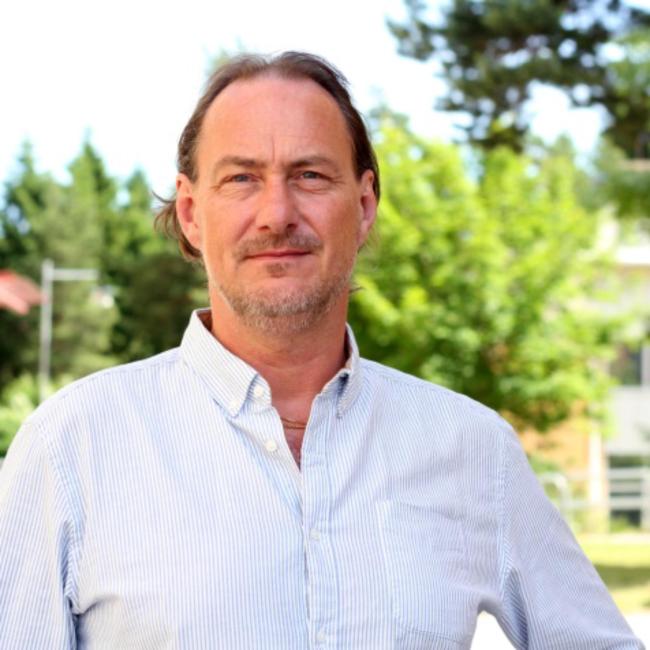Magnus Lindh

Forskning
My research explores how subnational actors—particularly regions and municipalities—navigate and influence multi-level governance in Europe. I focus on strategic leadership at the local and regional levels, especially in relation to EU policymaking. Rather than viewing subnational actors as passive implementers of EU policy, I examine how they proactively engage in “uploading” strategies to shape decisions at the EU level. To analyze this, I have developed a framework distinguishing between horizontal adaptation (internal positioning within local institutions) and vertical adaptation (interactions with EU institutions).
A second strand of my research concerns innovative teaching and EU didactics. In an era of Euroscepticism and disinformation, I explore how interdisciplinary, interactive, and reflective teaching methods can enhance public understanding and critical engagement with the EU.
I also investigate cross-border cooperation through the lens of differentiated integration, with a focus on subnational dynamics rather than national variation. A key case is the Kvarken Council EGTC, a unique Nordic-European hybrid that illustrates how local actors reconcile overlapping governance models across borders.
Another area of interest is co-creation and collaborative governance, particularly at the local level. I have participated in several international projects—such as CoSIE, CoCreaYOUTH, and ReCoCreaYOUTH—examining how municipalities involve citizens, especially young people, in public service design and decision-making.
In environmental governance, I study how subnational actors handle climate-related EU policies, focusing on tensions between different directives. Lake Vänern, the EU’s largest lake, serves as a case for analyzing competing policy objectives within complex governance frameworks.
Finally, I have recently turned to questions of security and regional resilience in the context of Sweden’s and Finland’s NATO accession. This includes exploring how local and regional actors adapt to shifting geopolitical landscapes—such as framing infrastructure projects as part of broader security strategies.
Undervisning
With over 25 years of teaching experience at Karlstad University, I have been actively engaged in course and program development, teaching at both undergraduate and graduate levels. My teaching spans the fields of international relations, European integration, regional development, and research methodology. I have developed and led courses in campus-based, online, and blended learning formats, always with a strong focus on pedagogical clarity and student engagement.
A key part of my teaching philosophy is to make complex political processes accessible and relevant to students. To this end, I have contributed to the development of internationally oriented learning resources, including a MOOC and digital modules created through collaborative European projects. These efforts have aimed to foster inclusive, flexible, and cross-border learning opportunities.
Beyond conventional formats, I actively explore innovative and participatory teaching methods. This includes the use of video-based learning and dialogue formats that bring together researchers and practitioners, creating dynamic environments where theory meets practice. I believe in teaching that is anchored in real-world challenges and that promotes critical thinking, reflexivity, and co-learning.
Samverkan
I am actively engaged in outreach beyond the university, regularly contributing to public discourse and policy dialogue. This includes expert commentary in national and regional media, as well as participation in public lectures, panels, and debates. I am frequently invited to serve as a moderator and speaker in forums where academia meets practice, especially in areas related to European affairs and governance.
In addition, I have contributed to the development of flexible and accessible education formats aimed at wider audiences. I work closely with municipalities and regions, particularly in projects focusing on EU affairs, participatory governance, and youth engagement. These collaborations often involve co-creating knowledge and capacity-building initiatives that support inclusive and democratic local development.
Publikationer
- Inga Narbutaité Aflaki, Magnus Lindh - 2023
- Magnus Lindh - 2016
- Magnus Lindh, Lee Miles - 2011
- Magnus Lindh - 2011
- Magnus Lindh - 2011
- Magnus Lindh, Lee Miles - 2010
- Hans Lödén, Magnus Lindh, Lee Miles, Curt Räftegård - 2009
- Magnus Lindh, Hans Lödén, Lee Miles, Malin Stegmann McCallion, Curt Räftegård - 2009
- Hans Lödén, Magnus Lindh, Lee Miles, Curt Räftegård, Malin Stegmann McCallion - 2009
- Magnus Lindh - 2009
- Magnus Lindh, Lee Miles - 2008
- Lee Miles, Curt Räftegård, Magnus Lindh, Hans Lödén - 2008
- Beatrice Hedelin, Magnus Lindh - 2008
- Magnus Lindh, Lee Miles - 2007
- Magnus Lindh, Lee Miles, Curt Räftegård, Hans Lödén - 2007
- Magnus Lindh - 2007
- Magnus Lindh, Curt Räftegård, Lee Miles, Hans Lödén - 2007
- Magnus Lindh, Lee Miles, Curt Räftegård, Hans Lödén - 2007
- Magnus Lindh - 2007
- Magnus Lindh, Lee Miles, Curt Räftegård, Hans Lödén - 2007
- Magnus Lindh, Lee Miles, Curt Räftegård, Hans Lödén - 2007
- Magnus Lindh, Lee Miles - 2006
- Lee Miles, Magnus Lindh - 2004
- Lee Miles, Magnus Lindh - 2004
- Lee Miles, Magnus Lindh - 2004

